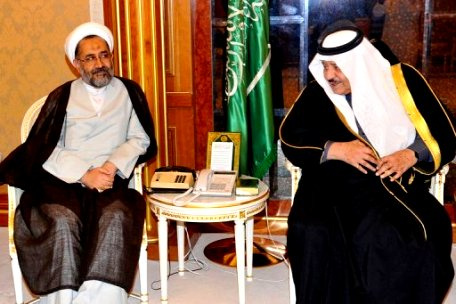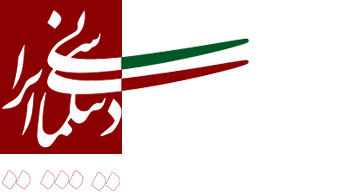Washington, Riyadh Tango in Front of Iran

As always, Saudi Arabia and US politics are dancing a tango, hand in hand. Despite it not complying with the most basic human rights principles, Saudi Arabia has been an old friend of the US, thanks to its rich oil reserves and its geo-strategic position. The friendship is ongoing regardless of the White House’s administration; a black, Nobel Peace Prize-winning democrat or a republican like George Bush, who instigated two wars against the Muslim countries of Afghanistan and Iraq. Diplomacy is not what keeps these countries bound together; Riyadh is simply a strategic comrade of Washington.
Many regional analysts consider Iran and Saudi Arabia as the two opposite sides of a scale. Throughout modern history, when one was heading upward, the other was experiencing decline.
As the topic of an oil embargo on Iran becomes increasingly heated, Saudi Arabia is positioning itself closer to the US in order to use this golden opportunity to maximize regional and international exploitation. During the past days, Barak Obama and Saudi Foreign Minister Saud al-Faisal have been in contact as their discussions mostly revolved around Iran and its nuclear program. Simultaneously, China and Japan are visiting the Middle East, seeking new oil partners.
IRD discusses Saudi Arabia’s role in sanctions on Iran with Hossein Ruyvariyan.
IRD: As the pressure mounts on Iran, Saudi Arabia has seen increased attention from the West. Why is that?
HR: Saudi Arabia considers Iran its regional and political rival, and therefore it pursues undermining anytime it’s possible. Accordingly, two years ago King Abdullah wrote a letter to Obama that was delivered by Adel al-Jubeir – the current Saudi ambassador to the US – asking the US to “cut the python’s head off”-- by python meaning Iran. Ironically, Adel al-Jubeir is the one who was the intended victim of the alleged terror plot that was exposed a few months back. Parts of this letter were published in the New York Times and Saudi Arabia did not deny the content of this letter. The Saudis objective by sending this letter was to incite America against Iran. I must note that Saudi played a role in staging the scenario for the assassination of its ambassador. This is all due to the regional competition that is ongoing between Iran and Saudi Arabia, as well as Saudi’s historic negative perception on Iran.
Iran was looking to open up constructive dialogue with Saudi by sending Mr. Moslehi to Riyadh, yet the effort was unanswered. It seems Saudi Arabia has made a decision to sanction Iran while provoking the US against Iran-- as well as cooperating with Israel-- behind the scenes.
Saudi affiliated media are presenting Iran as an enemy to the Arab world, aiming to replace Arab hostility towards Israel with antagonism toward Iran. In a way these media are working to serve Israel.
IRD: The proposed plan to boycott Iran’s oil has had countries like Japan and China turn to Saudi Arabia as an oil partner. What was their incentive to consider Saudi Arabia as an alternative?
HR: Saudi Arabia is a country with very large energy capabilities. Energy is the artery of the industrial countries and Saudi has huge oil reserves. Furthermore, Saudi is home to Masjid al-Haram and Masjid al-Nabi, which attract tens of millions of Muslims annually, giving it the opportunity to create a big market around its visitors. Therefore, Saudi Arabia’s appeal to the East is expected.
This however does not mean that China and Japan have decided to completely cut ties with Iran. Keeping diverse energy suppliers is a standard strategy that all importers of oil comply with.
IRD: In your opinion, how can Iran ensure continued business with countries like China and Japan in such conditions?
HR: In the international community, mutual interests must be considered. China seeks diversity in its energy suppliers while Iran needs to define China’s business needs in a framework of mutual interests. If the dimensions of two countries’ relations were extended to political, strategic and military relations, then it would be problematic to cut ties with that country; whereas a one-dimensional interdependence would be easy to replace. Therefore, an intelligent administration’s foreign policy would seek to extend interdependency to political, economic, military, security and strategic scopes. This way freedom of action against a country’s national interest by another would be reduced.


نظر شما :